According to a report by the American Association of Colleges of Pharmacy, the UTHSC College of Pharmacy has received $19.2 million in research funding from the National Institutes of Health in fiscal year 2022. It now ranks No. 6 on the list of 140 member institutions – up from No. 12 the previous year.
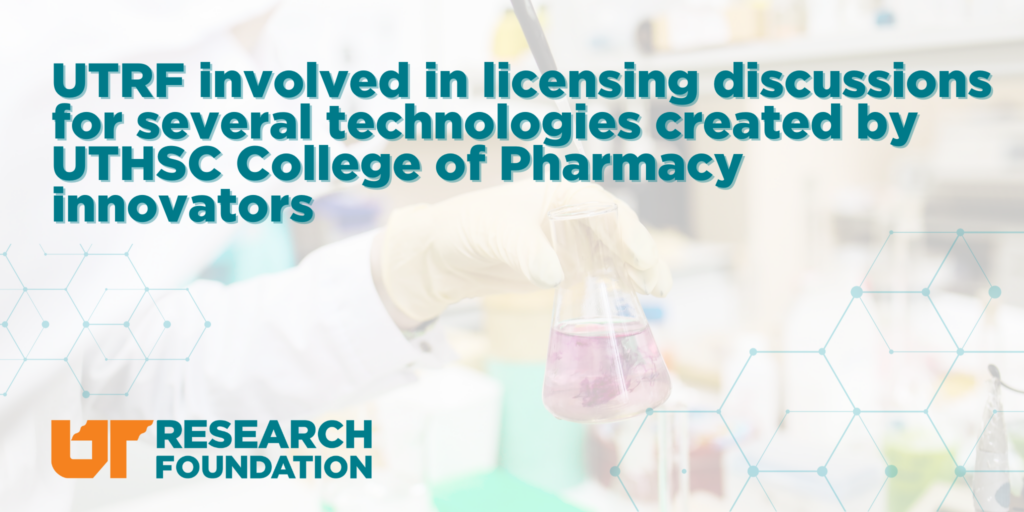
The University of Tennessee Research Foundation is proud to partner with innovators from the College of Pharmacy. In the past few months, UTRF has been involved in licensing discussions for technologies created by several researchers, including Wei Li, Michio Kurosu, Chao-Yie Yang and Jianxiong Jiang.
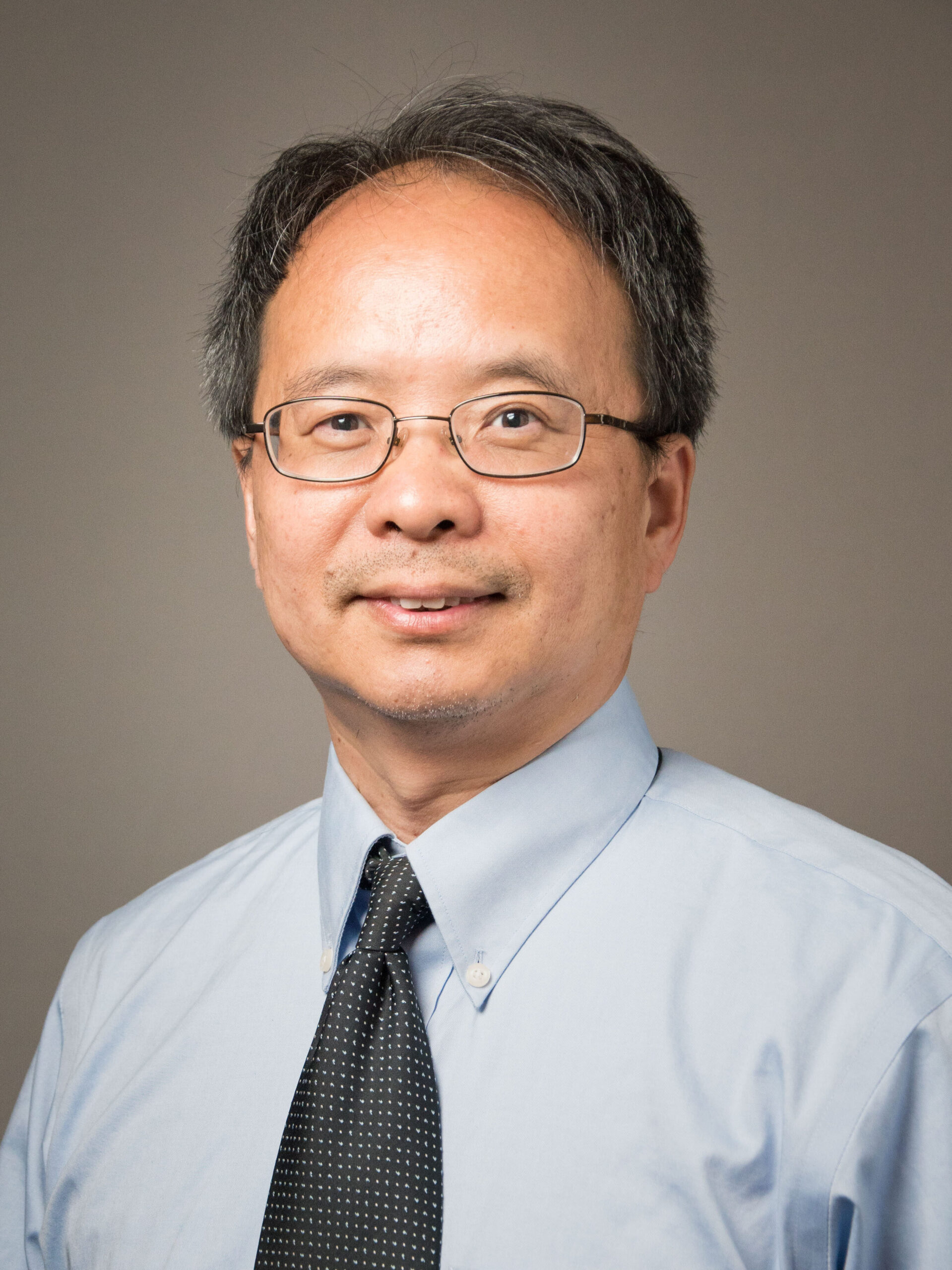
Li, Distinguished Professor and Director of the UTHSC College of Pharmacy Drug Discovery Center, focuses on small molecule drug discovery and development for cancer, neurological, and neurological diseases areas.
His innovations led to the creation of his startup, SEAK Therapeutics, and the compound sabizabulin. The latter compound, co-created with UTHSC College of Pharmacy Emeritus Professor Duane Miller, is in a Phase 3 Clinical Trial with UTRF licensee Veru for hospitalized adult patients with viral Acute Respiratory Distress Syndrome (ARDS).
Developing a drug, regardless of the disease indication, is a risky and expensive process,” said Li. “It is more practical to transition our preclinical research out of the academic lab into a commercial setting and let the industry partners who have much more experience in drug development and financial resources carry it forward.”
Li is thankful for the support he receives from UTHSC and UTRF, along with funding from the federal government on his projects.
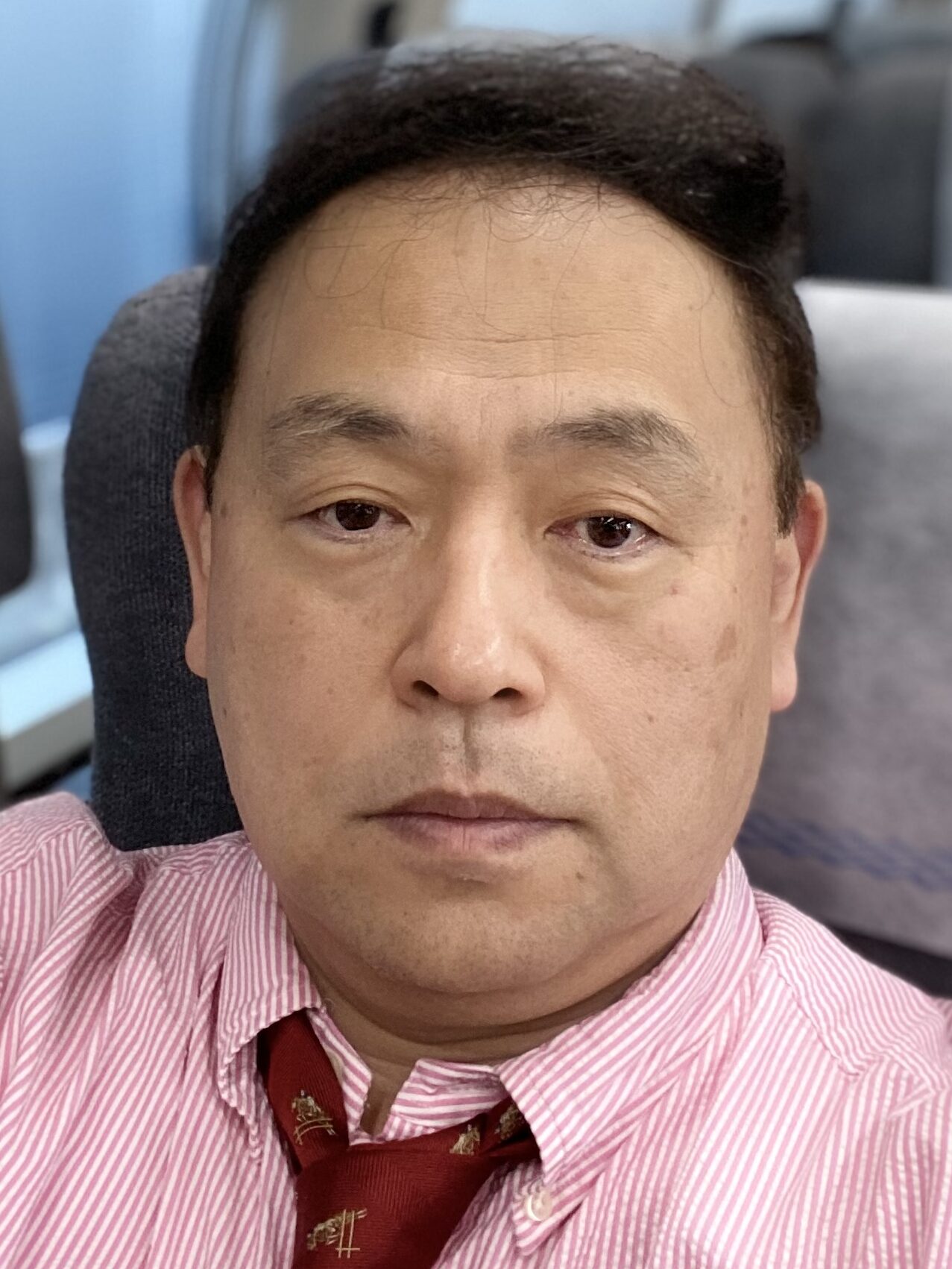
I plan to work with UTRF to de-risk these technologies for increased value to attract future development partners,” said Li. “I am optimistic that I may achieve my dream goal of facilitating the development of an FDA-approved drug.”
Kurosu, a Department of Pharmaceutical Sciences professor, is passionate about discovering new biochemical phenomena with innovative molecules.
Currently, his research focuses on understanding the mechanisms of action of N-glycan biosynthesis inhibitors and anticancer/antimetastatic drug discovery. He also serves as the research and science advisor for Anviron, a biotech therapeutics startup in preclinical development for his novel DPAGT1 inhibitor, ANV221.
An ultimate goal of biochemical research is to improve human health or to cure human diseases,” said Kurosu. “I always design basic research with the goal of real-world application, including drug discovery.”
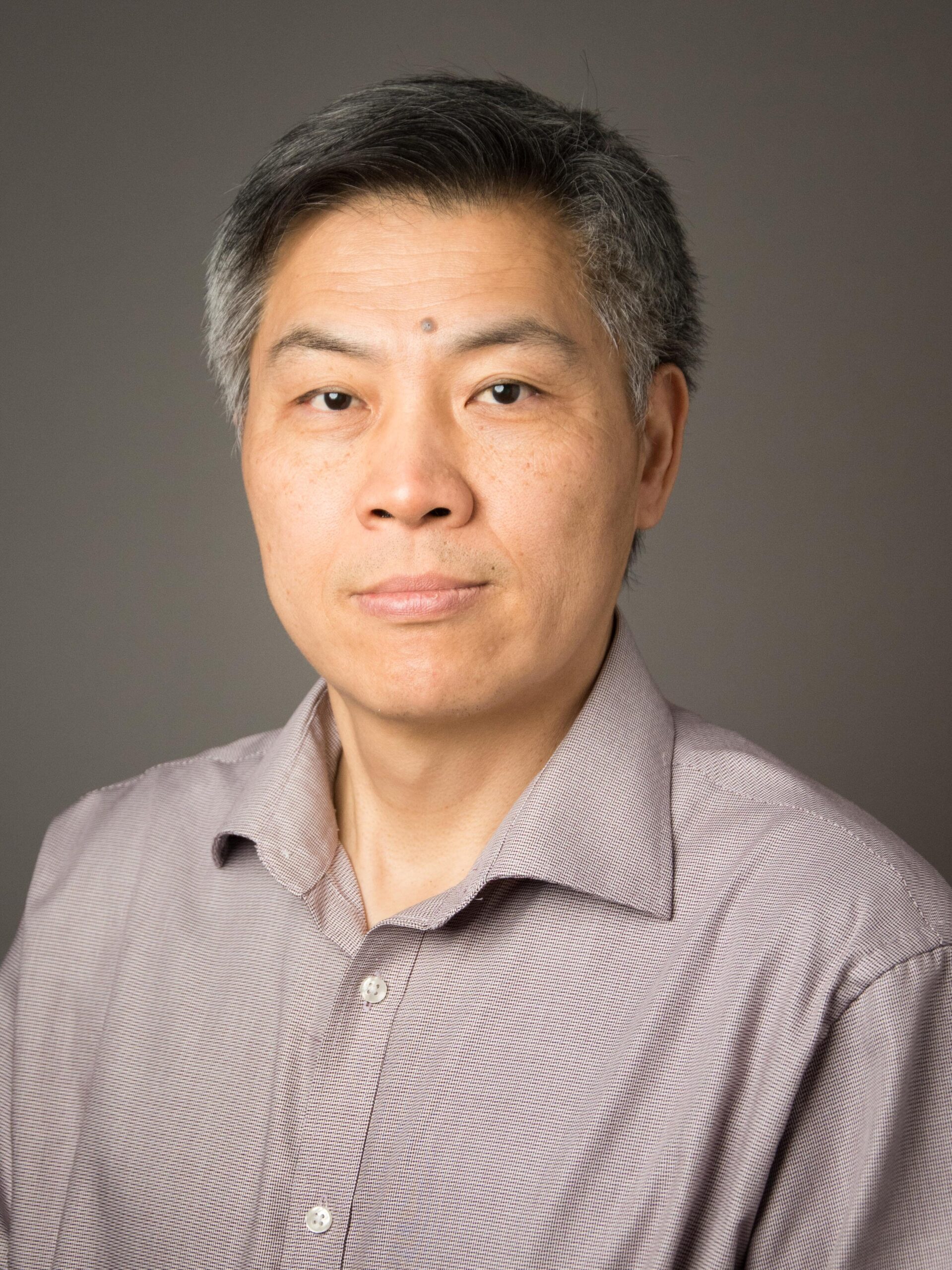
Associate Professor Chao-Yie Yang’s lab seeks to develop chemical probes and small molecules for treating cancer, inflammatory disease, and immune-mediated disorders. These compounds can potentially be used as leads for future therapeutics development.
Right now, his lab is focused on several projects, including identifying several classes of compounds that preferentially target soluble ST2 (sST2), an Interleukin 1 receptor-like 1 (IL1RL1) protein and developing two series of chemical probes that target a class of splicing factors. These splicing factors regulate RNA splicing in cells.
A partnership with commercial enterprises will be necessary to help move the projects forward,” said Yang. “The success of the study will, in turn, benefit the academic labs and the company financially and the health of the patients.”
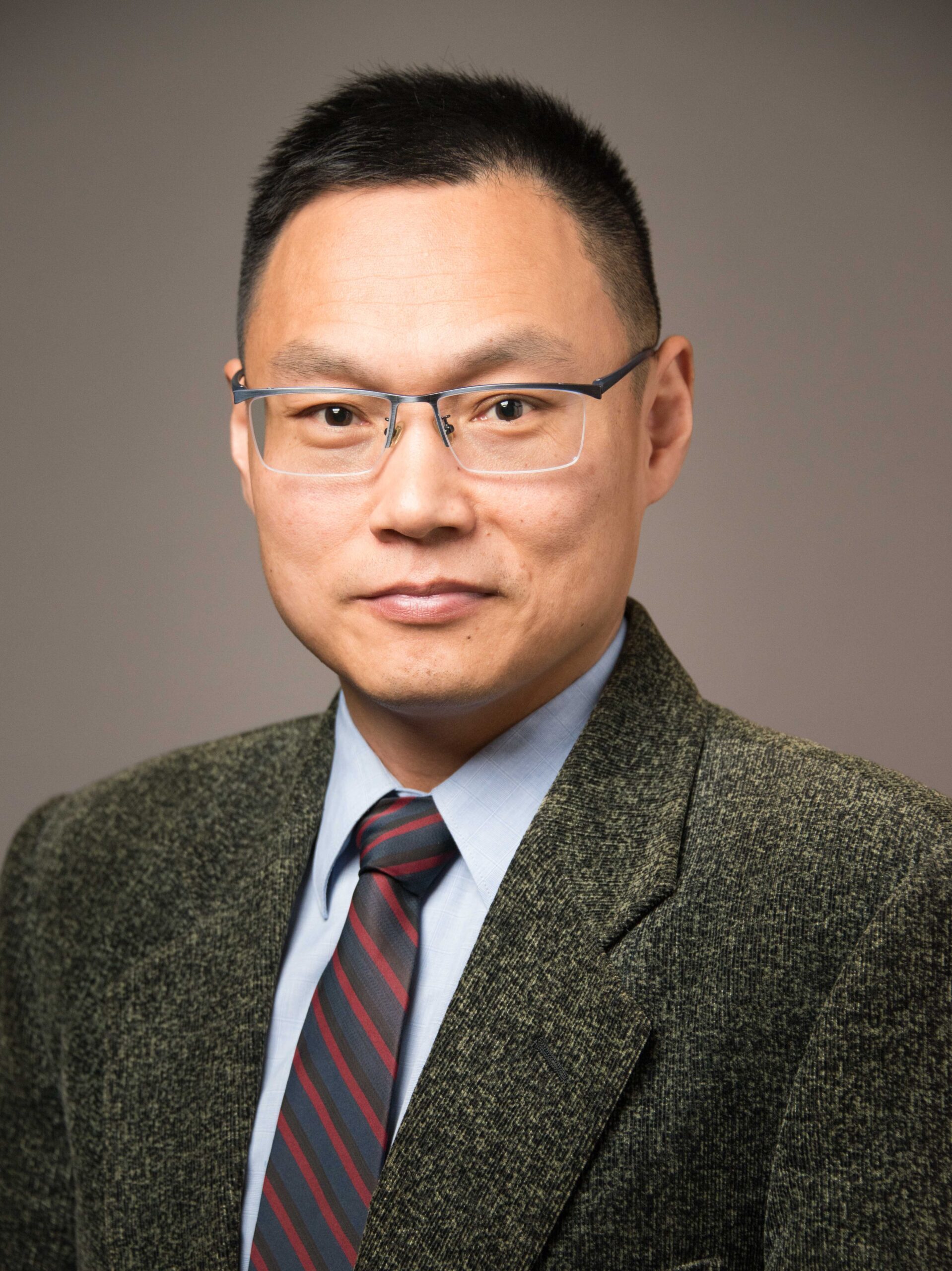
Jianxiong Jiang is an associate professor in the Departments of Pharmaceutical Sciences and Anatomy and Neurobiology. His lab studies neuroinflammatory signaling pathways triggered by acute excitotoxic insults, which contribute to the development of epileptic seizures. He is also interested in developing new pharmacotherapies for inflammation-associated conditions.
We have identified several proinflammatory mediators that play essential roles in acquired epileptogenesis of various etiologies and might represent druggable targets for next-generation treatment of seizure disorders,” said Jiang. “In collaboration with medicinal chemists at UTHSC, we developed novel small-molecule compounds that selectively modulate these proinflammatory pathways and possess the potential for further development into clinical applications.”
Looking ahead, Jiang’s lab seeks industry partners interested in developing new drugs and helping commercialize their findings.
Part of the reason these researchers have been so successful is their culture of collaboration – internally with other UT colleges and faculty members, and externally with academic and industry partners. They routinely leverage their expertise and resources, leading to even greater possibilities and tangible impact of their work,” said Todd Ponzio, Vice President of UTRF’s UTHSC office. “They simply epitomize what it means to conduct impactful collaborative science.”
“It has been an exciting time at UTHSC recently,” added James Parrett, Attorney for UTRF and a licensed pharmacist himself. “These premiere researchers have done some amazing work that has garnered industry interest, and we’re excited to help transition that research to those industry partners who can turn it into pharmaceuticals to help patients worldwide.”